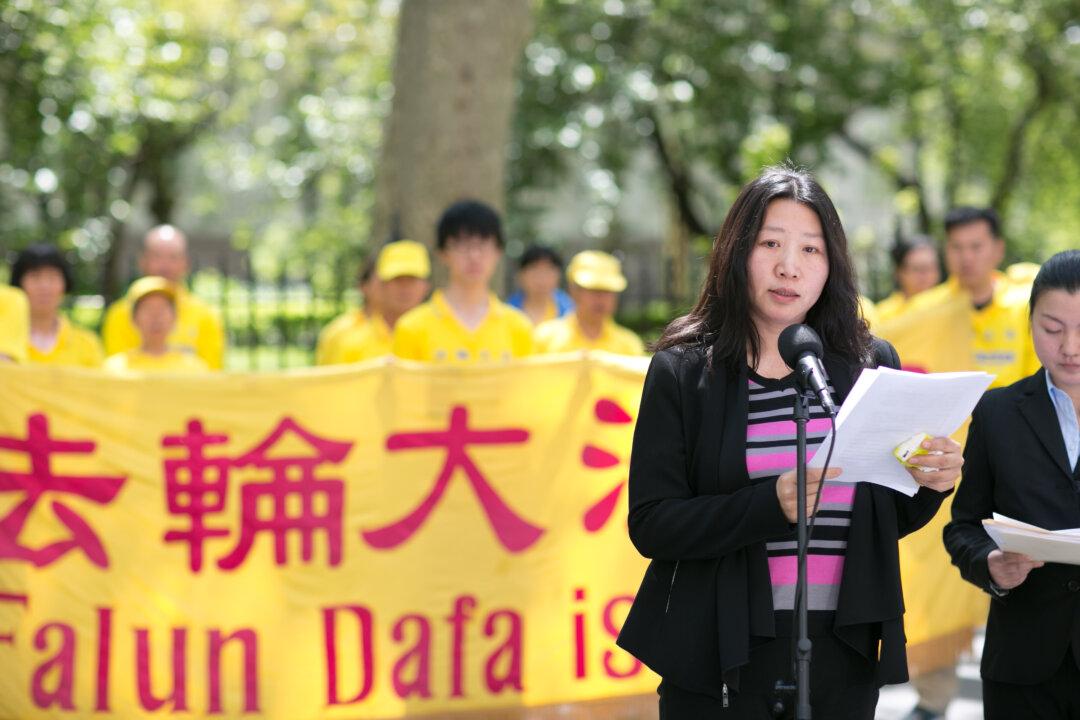NEW YORK—In the first of a series of public activities here this week, over two hundred practitioners of Falun Gong, the traditional Chinese spiritual discipline, stood outside City Hall on May 11, listening intently to the testimonies of survivors of the brutal persecution against the meditative practice in its homeland.
The eight witnesses—most of them speaking in Chinese with English interpretation—came from a cross-section of backgrounds that was representative of typical Chinese Falun Gong practitioners: educated, urban, and middle-aged or elderly.
Those who practiced Falun Gong reported experiencing dramatic health improvements and becoming more moral and upright people. By 1999, the year the Chinese Communist Party banned the practice, tens of millions of Chinese were practicing the exercises and reading the books of Falun Gong’s teacher, Li Hongzhi.




